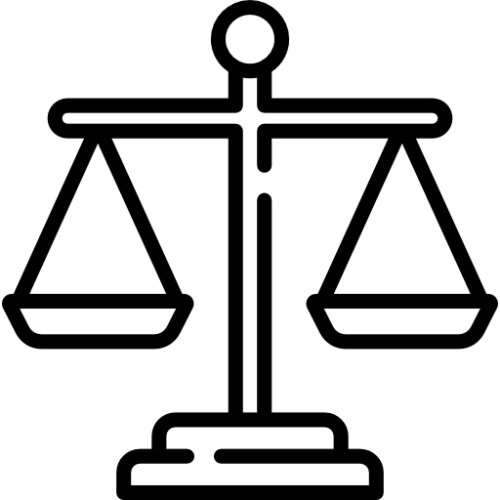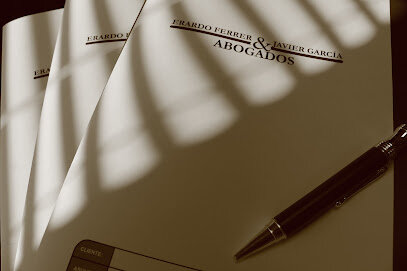Best Conveyancing Lawyers in Arrecife
Share your needs with us, get contacted by law firms.
Free. Takes 2 min.
Free Guide to Hiring a Real Estate Lawyer
List of the best lawyers in Arrecife, Spain
About Conveyancing Law in Arrecife, Spain
Conveyancing is the legal process of transferring property ownership from one party to another. In Arrecife, the vibrant capital of Lanzarote in the Canary Islands, conveyancing involves a series of procedures designed to guarantee the secure and lawful transfer of real estate. This process encompasses due diligence, contract drafting, searches, obtaining necessary certificates, and finalizing the transaction at the notary. Spain’s real estate market is unique and highly regulated, making it essential for buyers and sellers in Arrecife to understand the legal requirements and steps involved in a property transaction.
Why You May Need a Lawyer
Conveyancing in Arrecife, as in the rest of Spain, can be intricate due to legal requirements, local regulations, and language barriers. Here are some common situations where professional legal assistance is essential:
- Purchasing property in Arrecife for personal or investment purposes and wanting to ensure a clean title
- Selling a property and needing to draft or review the sale contract
- Navigating issues related to inheritance or transferring property ownership due to death or divorce
- Dealing with property disputes, encumbrances, or unpaid debts attached to the property
- Ensuring all municipal and regional legal requirements are met, including obtaining energy certificates and proving compliance with planning regulations
- Non-Spanish speakers who face additional challenges with official documents and communications
Having a qualified lawyer helps avoid costly mistakes and potential legal disputes, providing peace of mind throughout the transaction process.
Local Laws Overview
Arrecife, as part of Spain, follows Spanish property and conveyancing laws but also has certain regional nuances specific to the Canary Islands. Key aspects include:
- Due Diligence - A thorough check of the land registry known as the Registro de la Propiedad to verify legal ownership, boundaries, and encumbrances.
- Contract Formalization - The signing of a private purchase contract (Contrato de Arras) outlining the terms, followed by a public deed (Escritura Pública) formalized at a local notary.
- Tax Obligations - Buyers typically pay a property transfer tax (Impuesto de Transmisiones Patrimoniales), notary fees, registration fees, and sometimes municipal taxes specific to Arrecife.
- Energy Certificate - Sellers must provide an up-to-date energy performance certificate (Certificado de Eficiencia Energética) before completion.
- Legal Representation - It is not legally required, but highly recommended, to appoint a local lawyer (abogado) who can act with power of attorney and deal directly with authorities, notaries, and banks.
- Language - Documentation is usually in Spanish, meaning non-Spanish speakers benefit from legal help to translate and interpret crucial paperwork.
Frequently Asked Questions
What is the first step in buying a property in Arrecife?
The first step is usually making an offer and obtaining a Nota Simple from the land registry to verify the seller’s ownership and check for any debts or encumbrances on the property.
Is it necessary to have a lawyer for conveyancing in Arrecife?
Although not legally required, it is strongly advised to have a local lawyer to carry out due diligence, oversee the drafting of contracts, and guide you through legal and tax obligations.
What taxes do I need to pay when buying a property in Arrecife?
Buyers generally pay the property transfer tax, notary fees, land registry fees, and any applicable municipal taxes. The rates may vary depending on whether the property is new or resale.
How long does the conveyancing process take?
The process can take anywhere from a few weeks up to three months, depending on the complexity of the transaction and how quickly documents are produced and checks are completed.
What is a Contrato de Arras?
This is a reservation contract where the buyer pays a deposit to secure the property, and both buyer and seller agree to complete the sale under specified terms.
Do I need to be present in Arrecife to complete the transaction?
No, you can appoint a lawyer with power of attorney to represent you and carry out all necessary procedures on your behalf, especially if you reside abroad.
Are there checks for unpaid debts or utility bills?
Yes, part of the lawyer’s due diligence is to ensure that there are no outstanding debts, utility bills, or community fees associated with the property at the time of transfer.
What is the Escritura Pública?
This is the official public deed signed before a notary in Arrecife, which formally records the change of ownership and enables the property to be registered in your name.
What happens after the property is registered in my name?
Once registered, you officially become the owner, but it is important to update utility contracts, local tax records, and take out any necessary insurance policies for your new property.
Who pays the notary and registry fees?
Typically, the buyer pays the notary and land registry fees, though this can be negotiated as part of the sale agreement.
Additional Resources
For conveyancing matters in Arrecife, the following resources may be helpful:
- Registro de la Propiedad de Arrecife - The official land registry office for verifying property titles and encumbrances.
- Colegio de Abogados de Lanzarote - The local bar association providing access to qualified conveyancing lawyers.
- Ayuntamiento de Arrecife - The city council office for information on municipal taxes, permits, and official certificates.
- Notaries in Arrecife - Public officials who formalize the property deeds.
- Property Registries and Tax Offices - For more details on property taxation and registration fees.
Next Steps
If you are considering buying, selling, or transferring property in Arrecife, it is important to:
- Research and choose a lawyer who specializes in conveyancing in Arrecife and understands local regulations.
- Gather all relevant property documents, including title deeds and tax records.
- Schedule a consultation to discuss your goals, potential risks, and the overall conveyancing process.
- Clarify the legal fees and timelines in advance with your lawyer.
- Work closely with your legal adviser and the notary to ensure all documentation is in order before proceeding to contract and completion.
An experienced lawyer will guide you through every step, provide translations as necessary, and help you avoid any legal pitfalls to ensure a successful conveyancing experience in Arrecife, Spain.
Lawzana helps you find the best lawyers and law firms in Arrecife through a curated and pre-screened list of qualified legal professionals. Our platform offers rankings and detailed profiles of attorneys and law firms, allowing you to compare based on practice areas, including Conveyancing, experience, and client feedback.
Each profile includes a description of the firm's areas of practice, client reviews, team members and partners, year of establishment, spoken languages, office locations, contact information, social media presence, and any published articles or resources. Most firms on our platform speak English and are experienced in both local and international legal matters.
Get a quote from top-rated law firms in Arrecife, Spain — quickly, securely, and without unnecessary hassle.
Disclaimer:
The information provided on this page is for general informational purposes only and does not constitute legal advice. While we strive to ensure the accuracy and relevance of the content, legal information may change over time, and interpretations of the law can vary. You should always consult with a qualified legal professional for advice specific to your situation.
We disclaim all liability for actions taken or not taken based on the content of this page. If you believe any information is incorrect or outdated, please contact us, and we will review and update it where appropriate.










